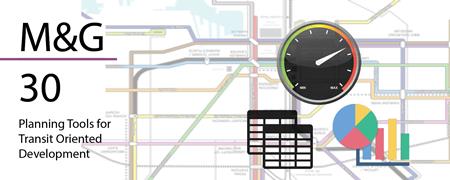Building Diversified Communities
Best practice: Transit Agency Leads TOD policy and development

The Washington Metropolitan Area Transit Authority (WMATA’s) Office of Real Estate and Parking has decades of experience in creating successful TOD projects in the Washington, D.C. region. Early on, WMATA recognized the benefits of mixed-use development and began land-use planning around Metro stations. WMATA’s robust real estate department includes staff with backgrounds in real estate, public affairs, engineering, planning, asset management and finance to identify joint development opportunities. Staff identifies development potential through commercial and residential growth projections, information the agency uses to generate potential TOD sites the agency can market or acquire.
WMATA’s TOD policy is based upon joint development. Properties either owned or controlled by WMATA are marketed to private developers to develop into TOD. Since its first project in 1975, WMATA’s significant joint development experience resulted in 55 TOD projects completed or under construction by 2022 at 30 stations with 17 million square feet of mixed-use development, five million additional trips and $194 million in annual state and local taxes. Combined with changes to the Federal Transit Administration (FTA) joint development policy, WMATA has increased private developer interest in building TODs. In a break from the past, when WMATA continued to own the land with long-term leases, WMATA has the ability to sell the land and keep the revenue. This change in development policy coupled with WMATA’s proactive pre-development planning and aggressive land assembly strategies has attracted developers who prefer owning the land over leasing.
 WMATA is leading a proactive TOD development approach at the New Carrollton Metro Station, a well-connected transportation hub with Metrorail, Metrobus, Amtrak, MARC, Greyhound, and future Purple Line (light rail) service. The transit agency no longer accepts or rejects plans drafted by developers. Instead of a developer approaching WMATA with a proposal, going through the approval process, then starting the plan, WMATA selects a developer and initiates the planning process to inform of the final negotiations. The developer organizes and pays for a community charrette and collaborative planning process with WMATA staff. This provides both WMATA and the developer a better idea of exactly what they can build and at what cost. The developer receives a credit for their expenditures that is reimbursed when they purchase the land. This collaborative process better informs decision-making by consulting all the project’s stakeholders early in the planning process and ultimately leads to better development around metro stations. As an example, Urban Atlantic is WMATA’s partner in developing 2.3 million square feet of mixed-use development within a half-mile of the station. The joint development will generate more than $20 million in taxes annually for Prince George’s County and increase ridership and revenue for WMATA.
WMATA is leading a proactive TOD development approach at the New Carrollton Metro Station, a well-connected transportation hub with Metrorail, Metrobus, Amtrak, MARC, Greyhound, and future Purple Line (light rail) service. The transit agency no longer accepts or rejects plans drafted by developers. Instead of a developer approaching WMATA with a proposal, going through the approval process, then starting the plan, WMATA selects a developer and initiates the planning process to inform of the final negotiations. The developer organizes and pays for a community charrette and collaborative planning process with WMATA staff. This provides both WMATA and the developer a better idea of exactly what they can build and at what cost. The developer receives a credit for their expenditures that is reimbursed when they purchase the land. This collaborative process better informs decision-making by consulting all the project’s stakeholders early in the planning process and ultimately leads to better development around metro stations. As an example, Urban Atlantic is WMATA’s partner in developing 2.3 million square feet of mixed-use development within a half-mile of the station. The joint development will generate more than $20 million in taxes annually for Prince George’s County and increase ridership and revenue for WMATA.
 Almost all of WMATA’s remaining joint development sites face challenges to meet infrastructure needs to support TOD and maintain or improve transit service. To make land available for TOD, WMATA converts surface parking lots into parking garages and relocates or re-configurates bus bays or kiss and ride lots. In addition, to meet TOD requirements, WMATA’s joint development needs to address stormwater management and construct a new street grid for vehicular, bus, bike, and pedestrian movements. At the Twinbrook station, WMATA and the developer (JBG Companies) replaced and consolidated the existing surface parking lot with a new parking garage in addition to 485 apartment units and 33,000 square feet of retail space. WMATA was able to maintain commuter parking capacity while making land available for TOD, which generates new ridership and economic development and enhances walkability of the station area.
Almost all of WMATA’s remaining joint development sites face challenges to meet infrastructure needs to support TOD and maintain or improve transit service. To make land available for TOD, WMATA converts surface parking lots into parking garages and relocates or re-configurates bus bays or kiss and ride lots. In addition, to meet TOD requirements, WMATA’s joint development needs to address stormwater management and construct a new street grid for vehicular, bus, bike, and pedestrian movements. At the Twinbrook station, WMATA and the developer (JBG Companies) replaced and consolidated the existing surface parking lot with a new parking garage in addition to 485 apartment units and 33,000 square feet of retail space. WMATA was able to maintain commuter parking capacity while making land available for TOD, which generates new ridership and economic development and enhances walkability of the station area.
TOD Best Practices: Building Diversified Communities
